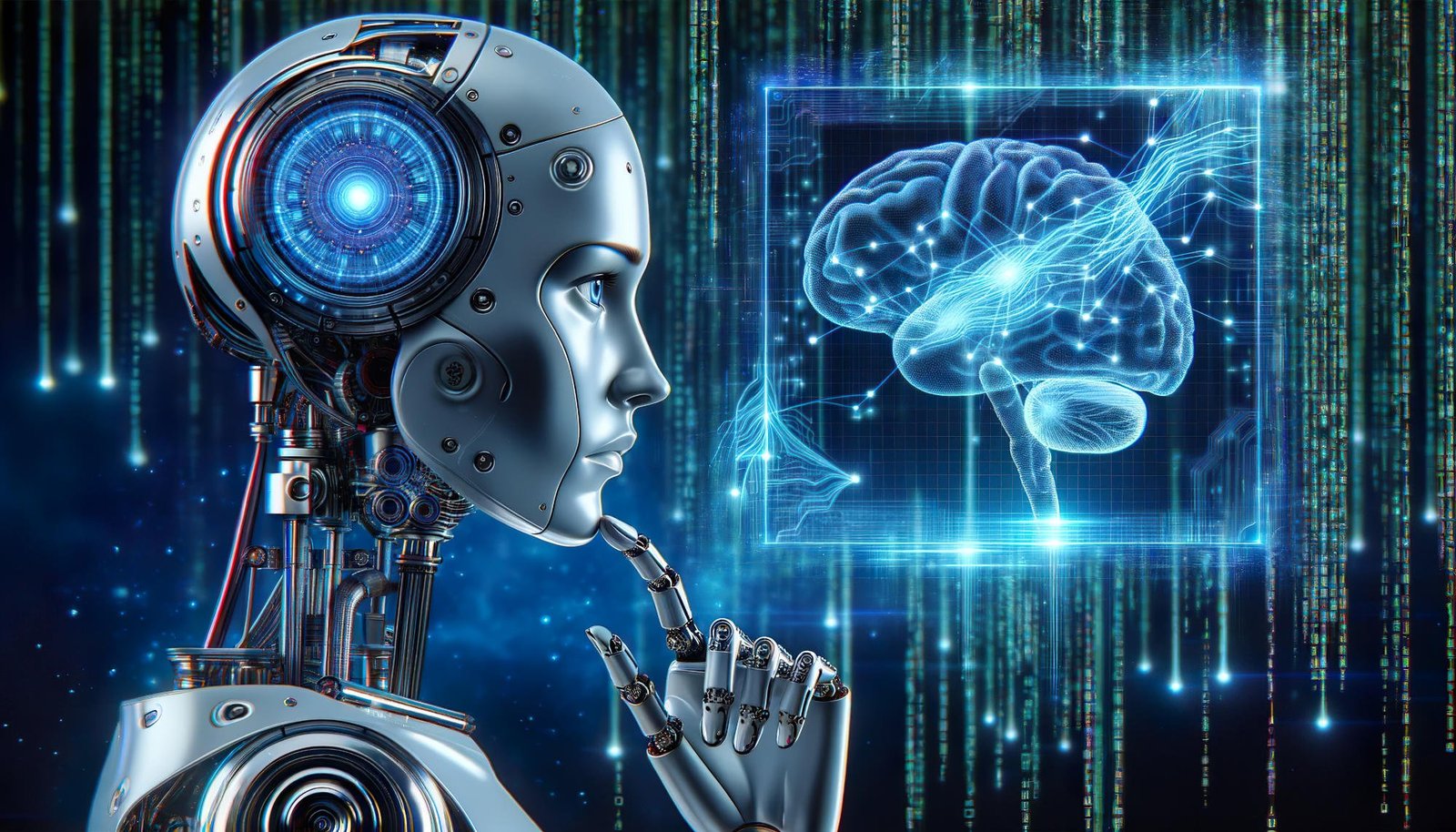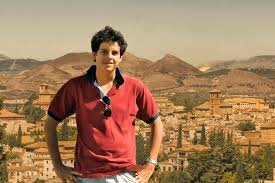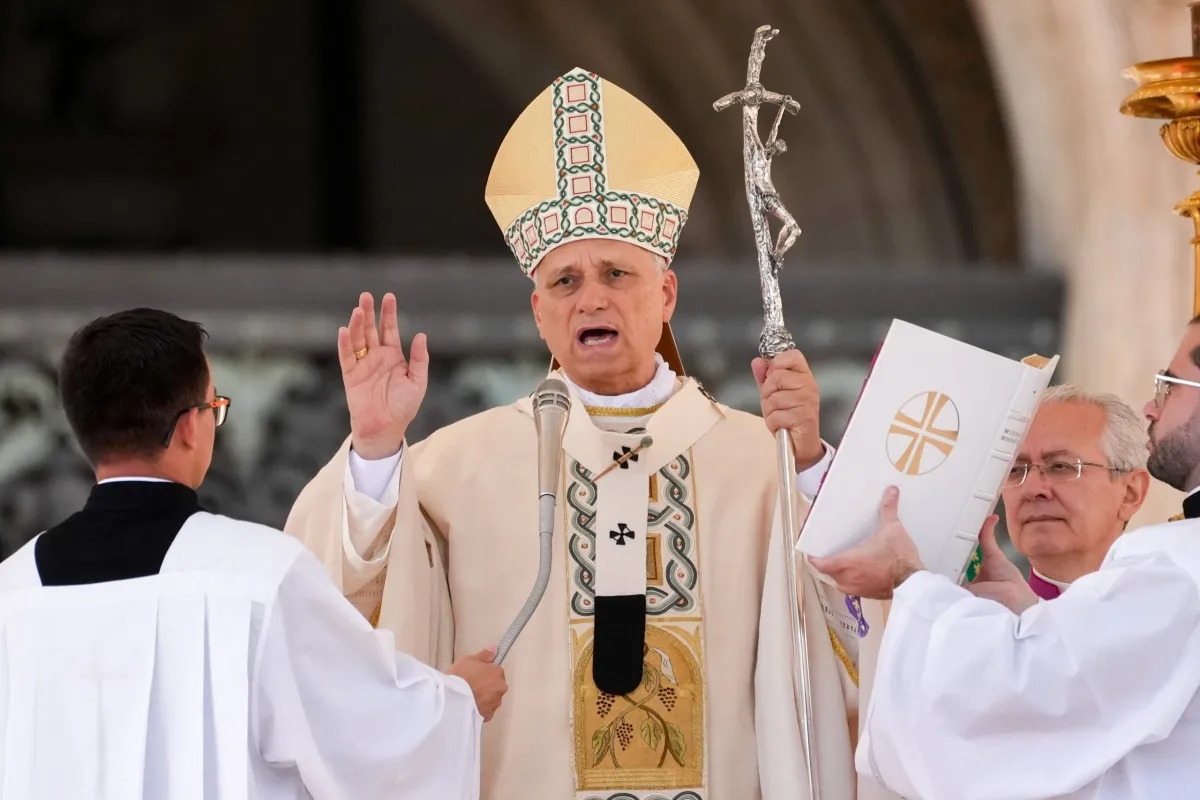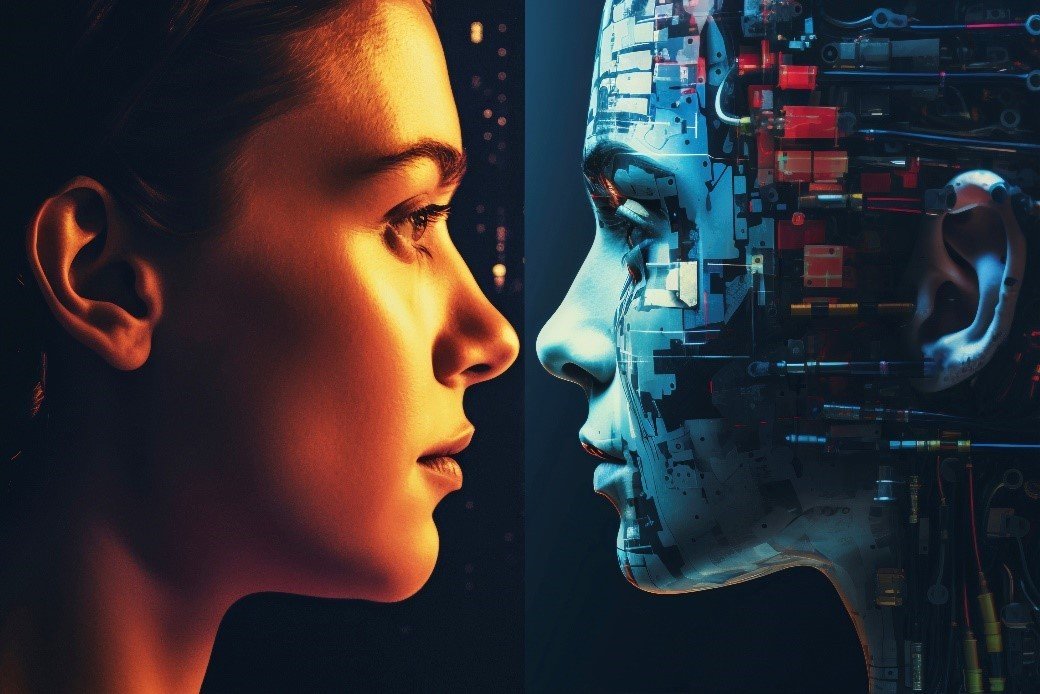Berkeley – For Pope Leo XIV, the use of artificial intelligence is the most important industrial revolution of our time. Theologian and AI expert Anna Puzio explains why AI is so important to the Pope – and what Christian digitalisation is all about.
With his papal name, Leo XVI wants to honour his predecessor Leo XIII. . Just as the first industrial revolution once challenged the Church in the 19th century, the Pope now sees artificial intelligence (AI) as posing new challenges for the defence of human dignity, justice and work. AI was already an important topic for Pope Francis – but the fact that his successor has placed the topic so centrally at the beginning of his pontificate is surprising. In an interview with katholisch.de, Catholic social ethicist and AI expert Anna Puzio explains what makes this Pope different – and what challenges Catholic social teaching faces today in the face of artificial intelligence.
Question: Mrs Puzio, the new Pope is following in the tradition of the founder of papal social teaching, Leo XIII. Leo XIV explicitly referred to developments in the field of artificial intelligence as a new industrial revolution to which the Church must respond. Were you surprised that AI was so central to this pontificate so early on?
Puzio: Pope Leo XIV put the topic on the agenda himself and of his own accord very early on, that’s the surprising thing. There would have been many other pressing issues of social ethics that he could have addressed. This distinguishes him from his predecessor, for whom the topic came gradually and from outside and was one of many.
Question: Nevertheless, the topic was already important to Francis, and most recently the Dicastery for the Doctrine of the Faith on the subject. Do you now expect something new and different from the new Pope?
Puzio: It starts very personally: Leo was seen wearing a smartwatch. He himself had accounts on Facebook and “X”. He doesn’t look at technical developments from the outside, but brings with him a basic understanding from his own use of media and technology. This does not mean that the social teaching of the Church under Leo has to be fundamentally different from his predecessors in terms of digitality. However, I think that – precisely because he refers to Leo XIII – he places even more focus on issues of social injustice that are exacerbated or newly arise through artificial intelligence, and that he emphasises the impact of new technologies on the importance of work and workers.
Question: The magisterial pronouncements on the subject have so far primarily emphasised anthropology, i.e. a systematic rather than a practical approach. Is this a sensible way to deal with tangible realities?
Puzio: The instruments of social doctrine must be developed further, that is certain. The Church’s social doctrine is constantly evolving. With Francis, we could already see how a radical criticism of technology has given way to a more differentiated view. This must be continued. Now would indeed be the time to bring a more practical orientation to the church’s discourse on technology. The church cannot just take an analytical view of technological developments from the outside. After all, it is part of this world itself and lives its religious practices in digitalisation and therefore also in the context of AI. I am curious to see what priorities Pope Leo will set here, whether this is even on his horizon despite his affinity for technology, how religious chatbots, avatars and robots are already being used today. There is still a lot of experimentation going on here – without it having been thought through with theological expertise. Many religious technologies are not yet good enough to be used in practice.
Question: With Pope Francis, the criticism was not at the level of the application of technology, but at the level of relationships – it was not about what makes a good religious chatbot, but that real human relationships are needed instead.
Puzio: When people have dealt with relationality in theology so far, it has been about the relationship between people or between people and God. But the question is also whether and how technologies can accompany and support relationships or whether they contribute to the isolation of people. Here we need to reflect on how people relate to technology – and how people relate to technology: AI systems as actually existing products are not neutral tools, but are generally developed with an economic objective in mind. The focus is not on human relationships, but on maximising usage times. Ultimately, it is about creating dependencies. At the same time, the technology is not limited to this: The same technology can also be used for responsible social robotics, for example, in education, in care for the elderly, in therapy.
Question: The Catholic social teaching with its principles has a tried and tested set of instruments for dealing with such developments: Personhood, solidarity, subsidiarity, the common good, later joined by sustainability and the option for the poor. Can these principles be used to meet the challenges of artificial intelligence, or do they need to be supplemented?
Puzio: The social principles are constantly being developed and reinterpreted in new contexts. That’s why the tried-and-tested social principles are basically tools that we can fall back on. However, I think that the anthropocentric concept of relationships needs to be broadened. For some time now, social teaching has no longer just been about people in isolation, but also about their place in the world, in nature, for example in relation to animals and ecosystems. It is now necessary to broaden this to include relationships with technologies. These relationships must be considered in their own particularity. It is therefore not a question of replacing interpersonal relationships, but of recognising the human network of relationships as a whole in its diversity and plurality. If, for example, we use “social robots” in the care or support of people with autism, then it is important not to see this as deficient from the outset in comparison to relationships with people, but to recognise the special features of these relationships.
Question: Does it even make sense to talk about “relationships” here? Or should this term not be reserved for people?
Puzio: Of course, the question arises as to what relationships actually are – in terms of world relations, everything could be interpreted as a relationship – and which of these are normatively significant. With regard to environmental ethics, the view has already been established that there are indeed relationships with animals, for example, that have a deep meaning for people. This can initially be recognised in a value-free manner and then we can begin to critically appreciate these forms of relationships.
Question: So far, Pope Leo has only highlighted the topic of AI and social justice, nothing has been formulated yet. What are you counting on? What are you hoping for?
Puzio: I think he will – also against the background of his time as a bishop in Peru – will focus on social injustices, on the gap between rich and poor. Global justice will certainly be a topic. I am curious to see whether he will also focus on the gender issue: Women and men use technology differently, are affected differently by technological developments and women are underrepresented in technologies. Different groups of people are discriminated against by technology, for example queer people or people with disabilities. Creating justice means focussing on vulnerability, on voices that have not yet been heard in the technology discourse. I also hope that, in continuity with Pope Francis, technology and environmental ethics will be considered together: We need to recognise the consequences that technologies have for the environment.
Question: And specifically in the case of artificial intelligence?
Puzio : With regard to artificial intelligence in particular, it would be important to take an approach that does not view AI as a disembodied, abstract counterpart, but as a material industry in which many people and the environment are involved and exploited. There is no such thing as “AI” as an actor; it is a complex social system made up of human and non-human actors with different interests, needs and vulnerabilities. Understanding and shaping this network is now the task of social ethics.
Source: https://english.katholisch.de
Why is AI the social issue of our time for Pope Leo? Cont..














Leave a Reply